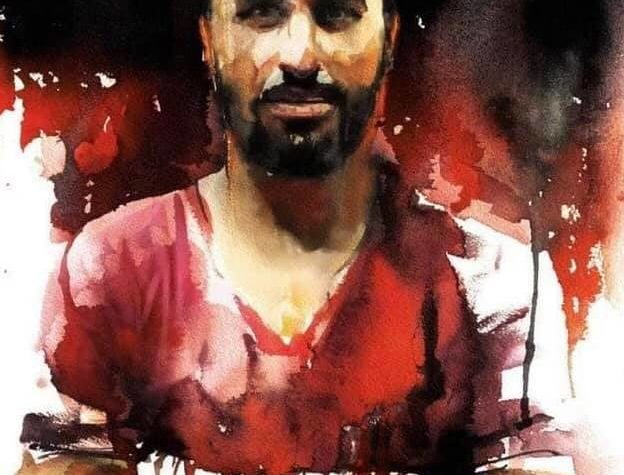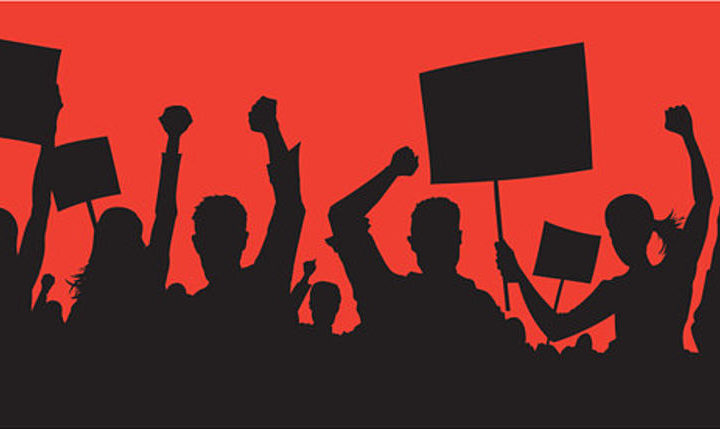Ashraf Dehghani
Butchery, atrocity, disgrace, bloodbath …. For 25 years, these words have suffixed the name of the Islamic Republic regime. However, even these words cannot properly describe the extent of the savagery and monstrosity of the ruling reactionaries during the summer of 1988. Although ensuing from the extremely vicious suppressions carried out by the regime in 1981, the massacres of 1988 were, in themselves, so tragic, so savage and so cruel that sometimes even the executioners carrying out these massacres were dismayed by them. Indeed, it is still unbelievable! How is it possible to have taken thousands of political prisoners in such a short period of time to the slaughter-house without their knowledge while handcuffed and blindfolded and then murder them by lynching and then transport their dead bodies in meat trucks and bury them in their clothes in mass graves!? How is it possible to have set both prisons and prisoners ablaze and turn dynamic living human beings into a pile of ashes!? But it is possible for it had been done. Yes, under the rule of a regime whose raison d’etre is to protect the interests of foreign powers and domestic dependent capitalists, any horrific crimes such as these are possible.
So in the summer of 1988, the Islamic Republic took the lives of thousands, nay, tens of thousands of the most conscious, most decent loving human beings in our society who wanted nothing but freedom and happiness for all. Do not think of these prisoners as strangers among the people, no, you all know them: they were our friends, our relatives. They were our sisters, our brothers, our children, our folks, our comrades. Each and every one of them was a family’s loved one; our loved ones. Some believed in communism, some were religious. However, they had one thing in common: they were all freedom-loving human beings; they were the forerunners of freedom. There is no doubt that the disgrace of committing such ghastly crimes will always remain part of the Islamic Republic’s dark profile. Nevertheless, it is important to ask why, indeed, the Islamic Republic committed such a huge massacre during this period? What reactionary needs was the regime trying to fulfill? The answers to these questions are not difficult: in fact, by referring to the social and political circumstances of that period one can easily understand the regime’s motives as well its objectives.
From the very establishment of the Islamic Republic, our people expected improvements in their living conditions and expected social and political freedom in our society, considering their efforts and struggles and the sacrifices they had made in overthrowing the Shah’s regime thinking that they had fulfilled the anti-imperialist democratic revolution in Iran. However, the Islamic Republic, which was no different from the Shah’s regime and which had, in fact, been placed into power by the all-encompassing support of foreign powers, opposed the demands of the people during each stage with a different justification. At the beginning before it had organized itself, the Islamic Republic, through the voice of its first Prime Minister, either implored the people to be patient, or instilled the fear in them of a breakout of “civil war” in order to foil their struggles. Sometime later, however, the Islamic Republic revealed its true face to the people by waging savage persecution and carrying out a bloodbath inside the prisons in 1981. Meanwhile, during this time, when the reactionary war between the Iranian and Iraqi governments was being waged, the regime was able to put off any expected improvements in society til the end of the war. Yet, because of the war itself, people were faced with such horrific calamities that their struggles reached a scale that forced the pro-war regime and the imperialists to finally end the war.
As we know, the massacre of the political prisoners; the bloodbath of 1988, was waged right after the Islamic Republic disgracefully accepted the UN resolution to end the war. At this stage, the escalation of the people’s rage and disgust toward the regime had generated a very inflammatory situation throughout society and there was, at all times, a possibility for the emergence of vast upsurges. Inside the prison walls, too, the prisoners’ combative and resistant morale were quite high despite the truly hellish conditions. On the other hand, the begrudged acceptance of the ceasefire and ensuing peace treaty had brought about particular necessities: the Islamic Republic, as a regime serving the interests of the imperialists as well the Iranian dependent capitalists, had to prepare the ground for investments in order to rebuild the ruins and devastation of war. Let’s think about this issue for a moment! In order to profit, capital is primarily in need of security. At that time, the imperialist media were, indeed, speaking of this with the outmost clarity and openly demanding from the regime to establish “political stability” in Iran otherwise investors would not go there. But creating “security” and “political stability” under these circumstances meant nothing other than repressing any righteous defiance and struggle and silencing any freedom-seeking voice existing in society with even greater savagery, so that while the ringleaders of the Islamic Republic retained themselves and consolidated the foundation of their regime, they were able to guarantee the security and “political stability” needed for foreign as well as domestic investment in Iran. This was the reactionary necessity to which the Islamic Republic answered by massacring the communists and other freedom-loving combatants.
Yes, the administrators of the Islamic Republic were quite aware of the masses’ rage and revulsion toward the regime and they knew all too well that, owing to the people’s horrendous living conditions, the rise of popular movements in society was inevitable back then. They were also aware of the fact that considering the absence of a powerful revolutionary organization, the presence of known combatants in a locality and amongst the people was a very effective element in uniting and organizing the masses (organization, i.e., the very important and essential weapon which our people have lacked and have thus been suffering from throughout the years). The regime, therefore, made the physical annihilation of each and every one of these freedom-loving and militant individuals its top priority. Thus, a total genocide took place; the destruction of a generation of conscious and militant women and men in Iran.
In so doing, the regime, prior to the carrying out of such a vicious plan, rearrested even those who had long served their prison terms and had already been released from prison. Furthermore, since it was planned to exterminate a whole generation, they began arresting Kurdish ex-freedom-fighters in Kurdistan who had for some time lay down their arms and, upon receiving government amnesty, had begun living ordinary lives. During that period, the regime did not release any of its dissidents from prison. Those whose prison terms had long been over were still kept in captivity and were so-called “nationally-wasted” (a term that bares the disgraceful mark of the Shah’s prisons). They were all murdered in the summer of 1988.
The setting up of death committees; unfittingly called “trials”, was yet another sign of the regime’s intent to physically eliminate all those known to be freedom-loving militants. These committees were assigned to screening the masses of prisoners in order to separate the ranks of militant and unswerving prisoners from those who were either willing to collaborate with the regime’s executioners in prison or who somehow fit the Islamic criteria, (of course, one must understand that the regime even took the lives from those sellouts begging for pardon). In carrying out their mission, the “death committees” assessed the prisoners by asking them certain prearranged questions. The questions had entirely political, ideological motives. The prisoners were not aware of the actual purpose of these questions either. The prisoner would be asked: Are you aware of the reason for your imprisonment? The prisoner would answer: I am a Marxist; or I am a Mojahed, or I have no affiliation with any political group but I do not believe in God, or I am not a committed prayer-gore, etc. And that was enough for the Islamic Republic’s mercenaries to write in front of their names: EXECUTION.
Right then, when the regime was spreading the news of its atrocities in order to create a fearful and terrifying atmosphere in society, it claimed that those massacres were in response to the Mojahedin’s operation “eternal light”, or what the regime referred to as the “MERSAD operation”. However, regardless of our opinion on the aims and objectives of Mojahedin in that operation (and even if we find it un-revolutionary), nevertheless, the above mentioned facts as well as other unveiled truths concerning this matter all attest to the falsity of the regime’s claim. Today, it has become evident, both based on the exposing testimonies given by the survivors of the regime’s genocidal crime, and as revealed by the bereaved and courageous families of those fallen political prisoners who show up every year at their loved ones’ graves, which have been given the title “damnation-land” by the regime, that exerting policies like canceling the prisoners’ visiting hours and at the same time transferring the prisoners from one prison to another, or the removal of TVs and the cutting off of all connections between the prisoners and the outside world in order to keep them unaware of the events going on in the country, etc, had all taken place prior to the Mojahedin’s operation. This obviously shows that the decision to exterminate the political prisoners and preparatory measures for doing so had been made by the Islamic Republic way before then. One must also realize that later on, some political currents in Iran and abroad, in order to cleanse the dirty deeds of Khatami and the “reformists”, made attempts to blame the 1988 tragedy of the massacre of the political prisoners solely on the ex-members of the Islamic Republic regime, particularly Khomeini himself. The truth of the matter is, however, that Khatami and the other so-called reformists participated either directly or indirectly in the massacre and that the hands of all those belonging to the regime are soaked in the blood of our loved ones. Basically speaking, it is not a question of this or that faction, this or that cleric or non-cleric official of the Islamic Republic. The issue here is, in fact, the regime in its entirety as the enemy of the oppressed masses of Iran; a regime that, should it remain in power, will continue the butchery, atrocity, disgrace and bloodbaths.
It must not happen again! It is our responsibility, each and every one of us, to fight this regime in any way we can. In fact, any effort to increase our own political consciousness and our awareness of what is happing in Iran today as well as around the world would be a step in the right direction. This criminal regime intends to dictate our future, the future of our sisters, of our brothers, of our children, and in short, it intends to dictate the future of our loved ones. We must not let this be so!
Either we will win our way out
Or the enemy will wipe us out
September 2003





More Stories
Ashraf Dehghani: On the Current Situation in Iran and the tasks of Revolutionary Forces (In Swedish)
On the Centennial of the October Revolution, let’s march toward another October!
An Introduction to “Armed Struggle, Both A Strategy And A Tactic”